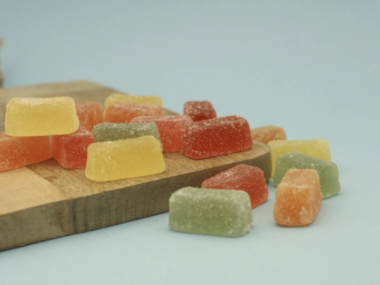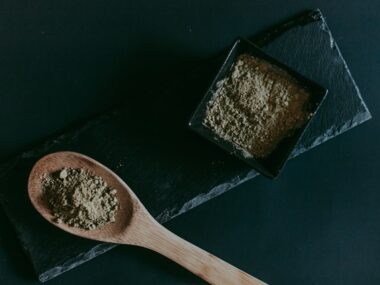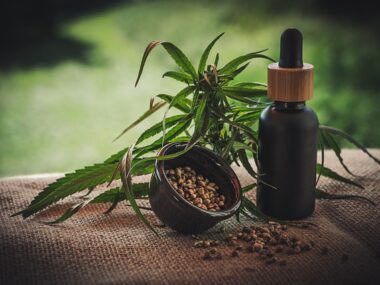Introduction
As the medical herbal trade prospers in the UK, more communities have become aware of the organic weed market due to various contemporary statewide legalizations. Customers are increasingly enthusiastic about the distinct advantages of medical marijuana-derived commodities. Interestingly, many entities comprise cannabinoid compositions with varied impacts and motives. As exotic varieties of CBD become mainstream, the cannabis industry faces dramatic growth, with CBD Vape Oil being its hero product.
Shoppers expect to learn more about the varied categories of weed-derived commodities ready for their consumption. Nevertheless, turmoil about cannabis derivatives is relatively standard. Even the most avid customers might not understand the discrepancy between prominent strains.
As more weed-based derivatives are becoming convenient, customers want to learn the discrepancies and likenesses between the various cannabinoids. A cannabis-derived compound amassing widespread attention is Delta, a popular CBD that exists in lesser doses. A knowledgeable customer can correctly conclude which products are perfect for them, from major marijuana-derived commodities to novices such as Delta THC commodities. Learn the significant factors which make Delta different from CBD. Read on!
Defining CBD
Cannabidiol (CBD) is a versatile chemical found in the hemp and cannabis plant. Due to its relaxing and anti-inflammatory properties, CBD has garnered the attention of consumers and researchers across the world, with more companies than ever before growing cannabis using seeds from online retailers like Zamnesia specifically for its CBD content. In contrast to THC, cannabidiol is non-psychoactive, meaning it does not induce intoxication in the user. This important distinction has led to CBD being delisted as a controlled substance throughout the world.
Since this cannabinoid is legitimate and readily available across several governments, it is one of the most prominent and least stigmatized CBD. While various provinces have legalized weed-based commodities, several CBD firms confront challenges and barriers enforced by the Food and Drug Administration.
Delta Derivatives
It is a unique cannabinoid form in medical weed grains. Because Delta is so rare, it is always artificially generated and converted from cannabinoids.
Just like CBD, Delta derivatives are also cannabinoids. Moreover, it HAs stress-reducing and intoxicating impacts. Moreover, CBD does not certainly elicit psychoactive outcomes. Its adverse effects and advantages distinguish from Delta derivatives, which still mandate additional exploration.
Factors Which Make Delta From CBD
Some factors which make Delta from CBD are:
● Source Of The Compound
Cannabis-sourced CBD extracts originate from the leaves and flowers of herbal hemp plants. The aerial elements of the cannabis herbal plant encompass the trunks, blossoms, and leaves. Interestingly, CBD is only in the herb’s aerial parts, not the roots or grains.
To separate Delta derivatives, manufacturers utilize a pale film distillation technique that puts up with weather and pressure variations. They begin with the cannabis blossom, broken down, and fractionally purified. This technique elicits Delta distillate, generally comprising more than 80% Delta.
● Chemical Composition And Body Functioning
As per various studies, cannabinoids prevent strokes by hindering data communication to the human brain, adapting calcium levels in brain chambers, and curtailing inflammation in the brain.
Delta has been shown in reliable clinical tests to have a variety of further applications. According to various animal studies, canines with osteoarthritis delivered delta products were more effective and slightly irritated. Thus, it indicates that there may be human usage for dealing with chronic pain and severe internal inflammation.
● Medical Characteristics
CBD supplements may benefit those who wield heroin restraint longings and tension because of their inhibitory impact. As per several clinical studies, individuals who used CBD products had limited urges when drug-free. The conclusions are significant, indicating that these compounds could be a valuable relief for people striving for addiction therapy.
Various credible scientific research backs delta derivatives as medicinal and therapeutic cannabinoids. Because it tends to connect itself to CB1 effectors throughout the human body, encompassing those in the brain and nervous network, Delta derivatives may be an efficient analgesic.
Hence, it may aid you in handling chronic pain by holding you comfortable and minimizing muscle cramps or nerve malfunction in the human body. Delta derivatives might not drive you to feel sick, bloated, or lose hunger, impacting the human digestive network.
Though all the possibilities of Delta derivatives and CBD are anonymous and even under analysis, scientists have discovered that these cannabinoids have remarkable therapeutic advantages. Both Delta and CBD have identical scientific structures. These two blends have a few equivalents as well as distinctive properties.
● Safety Concerns
Due to a shortage of definitive studies, we cannot say much about the unfavorable impacts of ingesting Delta products. Nevertheless, individuals using these supplements noted side effects such as:
- Puzzlement or Confusion
- Paranoia
- Strain
- Tiredness
- Passivity
- Rapid Changes In Heart Rate
- Numbness
- Variations In Blood Pressure
Though Delta derivatives are less concentrated, they can also be weakly addictive and induce dependence over time. Nevertheless, if you encounter side effects of these herbal supplements, even mildly and can be easily switched by drawing from them.
On the flip side, several studies have been able to review some characteristics of the side effects of CBD. Though it is typically well-tolerated by most, some folks have reported encountering adverse effects like:
- Sore Throat
- Diarrhea
- Less Appetite
- Sleepiness
- Exhaustion
- Liver Dysfunction
- Lower Blood Pressure
When carried in steady doses, CBD poses no threat of addiction. Drug dependence can happen if hefty amounts of CBD are prolonged.
Nevertheless, CBD responds with specific drugs such as blood thinners, corticosteroids, immunosuppressives, and pain killers. Conversely, Delta delivers unfavorable reactions when carried with typical sedatives such as clonazepam and phenobarbital. So, if you select either of these two cannabis herbal compounds or supplements for any health ailments, make sure you are not taking these drugs.
Conclusion
Our expert research proves that CBD and Delta derivatives are advantageous for regaling various health ailments. Nevertheless, further research indicates that Delta products have more potential than CBD.
Assessing these factors, we conclude that delta derivatives are a better choice when you seek a potent cannabinoid to address your health problems. Nevertheless, it would be helpful to be cautious about drug interactions and additional adverse effects.





